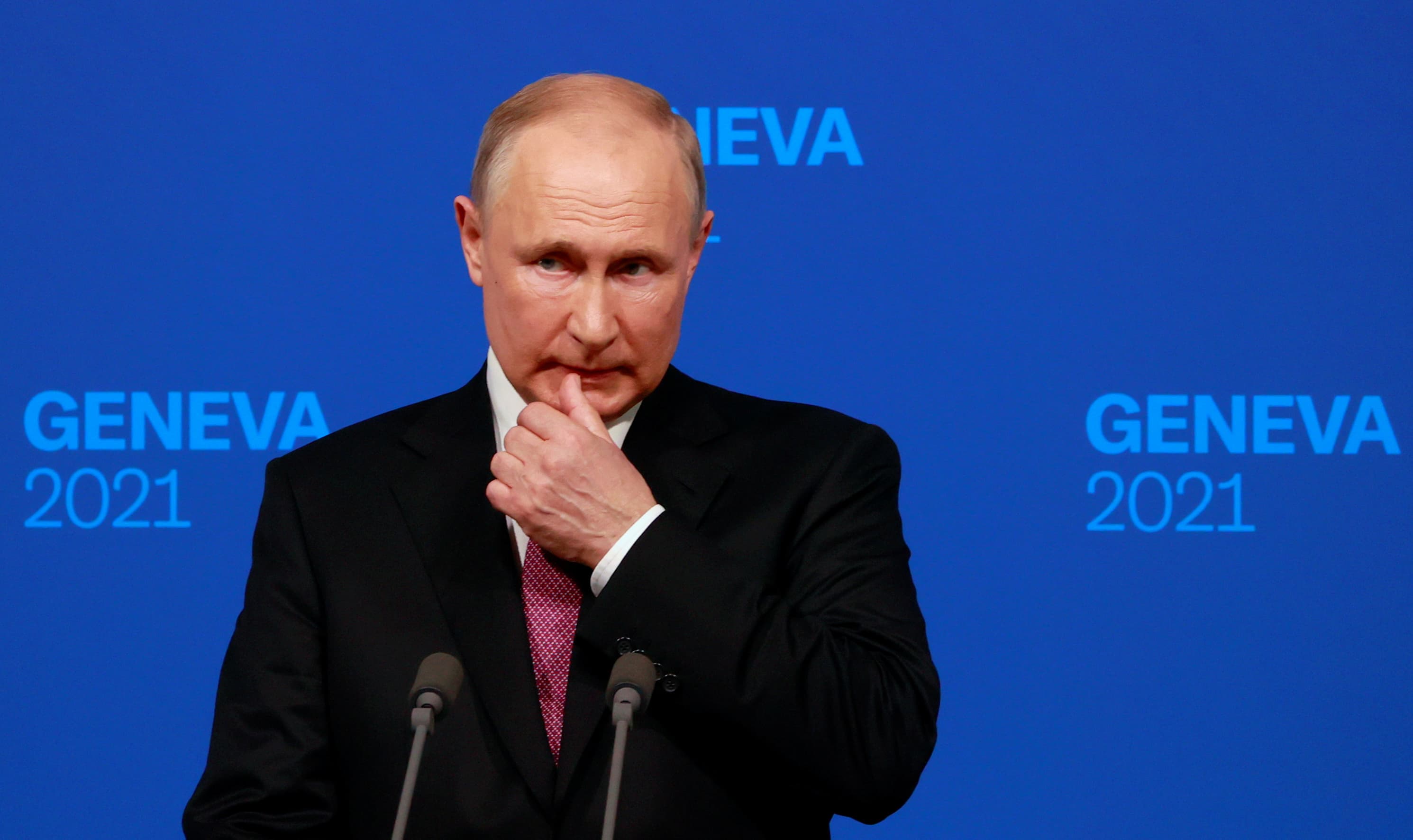
Russia’s President Vladimir Putin holds a news conference after the U.S.-Russia summit with U.S. President Joe Biden at Villa La Grange in Geneva, Switzerland, June 16, 2021.
Denis Balibouse | Reuters
WASHINGTON – The Biden administration is looking at ways to secure energy for European allies in the event that Moscow slashes its oil and gas exports in retaliation for sanctions imposed for an invasion of Ukraine.
“We’re in discussions with major natural gas producers around the globe, to understand their capacity and willingness to temporarily surge natural gas supply and to allocate these volumes to European buyers,” a senior administration official said Tuesday on a call with reporters.
“We’ve been working to identify additional volumes of non-Russian natural gas from various areas of the world from North Africa and the Middle East to Asia and the United States,” the official said, adding that European energy stockpiles are significantly lower due to reduced Russian supplies over the last few months.
The official, who declined to be named in order to share details of ongoing plans, said the administration was also coordinating with major buyers and suppliers of liquefied natural gas to ensure diversion to Europe if necessary.
“If Russia decides to weaponize its supply of natural gas or crude oil, it wouldn’t be without consequences to the Russian economy,” explained a second senior administration official on the call with reporters.
“This [Russia] is a one-dimensional economy and that means it needs oil and gas revenues at least as much as Europe needs its energy supply,” the official said, adding that oil and gas exports make up about half of Russia’s federal budget revenues.
“This is not an asymmetric advantage for Putin. It’s an interdependency,” the official said.
For months, the U.S. alongside European allies issued threats of swift and severe economic consequences if Russian President Vladimir Putin orders an invasion of Ukraine.
Last week, Biden said “a disaster” awaits Russia after intelligence agencies warned that an attack on Ukraine could happen within a month.
The intelligence assessment follows an extraordinary deployment of more than 100,000 Russian forces and equipment along Ukraine’s border. In recent weeks, the Kremlin deployed additional Russian troops to Belarus.
The buildup mimics Russian moves ahead of its 2014 illegal annexation of Crimea, a peninsula on the Black Sea, which sparked an international uproar and triggered a series of sanctions against Moscow.
“This time we’ll start at the top of the escalation ladder and stay there. We’ve made efforts to signal this intention very clearly,” one of the officials said, referencing U.S. actions taken in 2014.
The Kremlin has previously denied that it was preparing for an invasion and has characterized the troop deployment as a military exercise.




